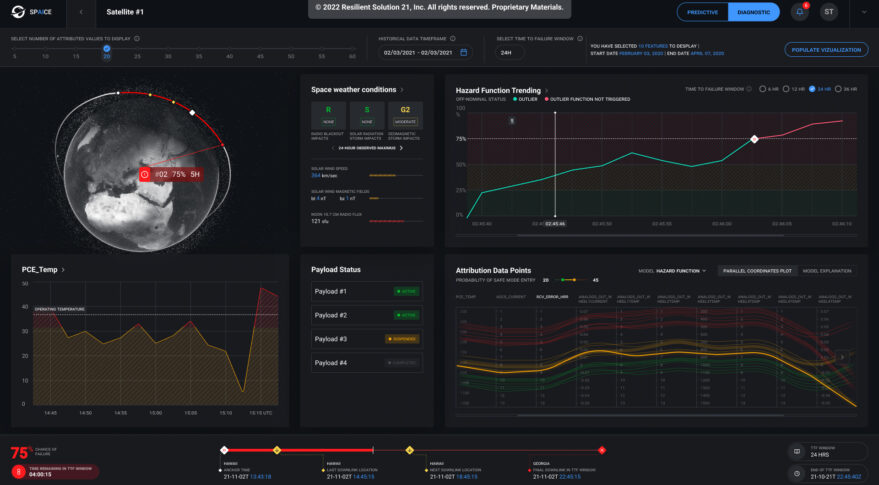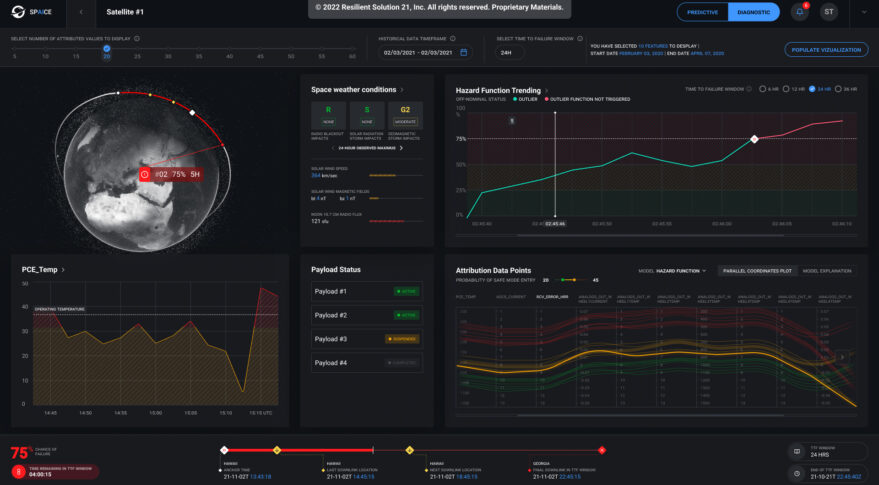
Space Force funds experiment on use of AI to predict satellite failures (Image Credit: Space News)

WASHINGTON — RS21, a data science startup developing artificial intelligence tools for autonomous space operations, won a U.S. Space Force contract to research the use of AI to predict satellite failures in orbit.
The company, based in Albuquerque, New Mexico, announced Oct. 26 it won a two-year Small Business Innovation Research Phase 3 contract worth $375,000 with options for over $1 million in additional work.
The technology will be tested in an upcoming Space Test Program (STP) experiment, STPSat-7, projected to launch in 2023 to low Earth orbit.
RS21 is developing software that will be integrated in the STP ground station at NASA’s Johnson Space Center, Houston, prior to launch. The data will be used to train the AI model in preparation for the STPSat-7 experiment.
Trisha Miller, director of research and development at RS21, said the SBIR funding will help accelerate the maturation of the company’s Space Prognostic AI Custodian Ecosystem, or SPAICE.
The AI-powered monitoring system performs fault detection to predict satellite malfunctions. It uses real-time satellite telemetry data and anomaly messages to predict a lead time before satellites fail, said Miller.
“We are optimistic that this groundbreaking AI technology will support government missions and have commercial applications to meet the demand for autonomous solutions.” she said.
RS1 is seeking additional funding from the Space Force’s technology arm SpaceWERX for a cloud-based deployment of the SPAICE tool, and integration and analysis of data from the International Space Station.








